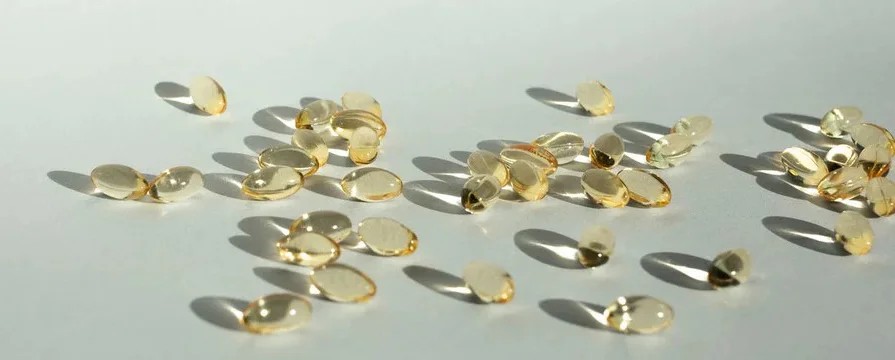Multimodal method is generally necessary for effective management of acne caused by hormones, vitamins and supplements playing an important part. Including specific vitamins and supplements can help treat hormone imbalances, lessen inflammation, and improve internal skin health. Important supplements have shown interest in boosting skin cell turnover, regulating hormone levels, and easing signs of acne include zinc, vitamin D, and omega-3 fatty acids. Herbs that promote hormonal balance, such saw palmetto and evening primrose oil, may also help with skin clarity and health. Vitamins and supplements work together to prevent hormonal acne when included in thorough skincare routine, offering an integrated approach to cleaner skin.
Being essential micronutrients, vitamin are important for preserving general health and wellbeing. Vitamins are essential to many physiological functions in body, include improving skin health to supporting immune system. To guarantee appropriate vitamin consumption, imperative to incorporate varied array of vitamin-rich foods into one’s diet, including fruits, vegetables, whole grains, and lean proteins. Vitamin supplements could be required to support certain health objectives or to address certain deficiencies. Secret to reaching and maintaining optimal health throughout life is to focus balanced vitamin diet, it be for vitamin C to support immune system, vitamin D to support bone health, or vitamin E to protect the skin.
Here are the 10 Effective Supplements and Vitamins for Hormonal Acne:
1. Zinc:
Zinc is an essential mineral that is important for immune system and skin health. It is widely known for having anti-inflammatory qualities, which may lessen the appearance of acne. Zinc also lowers sebum production and controls hormone levels, especially androgens, which helps to avoid pore blockages and lessen the frequency of hormonal acne episodes.
2. Vitamin A:
Vitamin A is essential for the growth and extension of skin cells since it is a fat-soluble vitamin. It encourages skin cell turnover, which stops dead skin cells from collecting and blocking pores, which can result in pimples. In addition, vitamin A is a useful supplement for hormonal acne management since it controls the production of sebum and lowers inflammation.
3. Vitamin D:
Recent research has indicated that vitamin D may play a part in the treatment of acne. Because of its anti-inflammatory and immune-supportive qualities, vitamin D may help lessen the extent of lesions associated with acne. Appropriate amounts of vitamin D are essential for maintaining healthy skin because deficiencies have been linked to hormonal variations.
4. Omega-3 Fatty Acids:
Omega-3 fatty acids are well known for being anti-inflammatory and can be found in fatty fish-like salmon as well as fish oil supplements. Omega-3s can aid with acne symptoms including redness and swelling by lowering inflammation. Additionally, by preserving cell membranes and encouraging hydration, omega-3 fatty acids improve the general health of the skin.
5. Evening Primrose Oil:
This oil, which is made from evening primrose plant seeds, is high in the omega-6 fatty acid gamma-linolenic acid (GLA), which has anti-inflammatory qualities. GLA affects the production of prostaglandin, which helps control hormone levels, especially in women. Evening primrose oil has the potential to successfully manage hormonal acne by balancing hormones and lowering inflammation.
6. Vitamin E:
Vitamin E shields the skin from oxidative damage brought on by free radicals because it is a potent antioxidant. It lessens the chance of acne scars by promoting skin regeneration and repair. Furthermore, vitamin E contains anti-inflammatory qualities that can help calm irritated skin and lessen the redness and swelling associated with acne.
7. Selenium:
Selenium is an essential minor element that is part of the enzymes known as antioxidants that shield the skin from oxidative damage. The production of sebum and hormone balance may be impacted by selenium’s ability to control thyroid hormone breakdown. Selenium has been shown to boost thyroid function and reduce inflammation, which may help with skin clarity and less severe breakouts.
8. Vitamin C:
Another strong antioxidant, vitamin C is also essential for the formation of collagen, which keeps skin resistant and flexible. Furthermore, vitamin C eliminates free radicals, shielding the skin from oxidative stress and damage from the environment. Vitamin C may assist in preventing and treating hormonal acne by lowering inflammation and promoting the healthy functioning of the skin’s barrier.
9. B Vitamins:
The B-complex vitamins, which include pyridoxine (vitamin B6) and pantothenic acid (vitamin B5), are involved in a number of biochemical activities that affect hormone balance and skin health. Vitamin B6 is involved in hormone metabolism, whereas vitamin B5 aids in managing the production of sebum. B vitamins may help lessen acne breakouts by promoting hormone balance and enhancing adrenal function, especially when acne is linked to hormonal changes.
10. Saw Palmetto:
This herbal supplement, which is made from the berries of the saw palmetto plant, is frequently used to block the action of 5-alpha reductase, a chemical that changes hormone into dihydrotestosterone (DHT). Acne development and increased sebum production are linked to high DHT levels. Saw palmetto may lessen the severity of hormonal acne and assist control hormone levels by inhibiting DHT.
Conclusion:
While vitamins and supplements can be helpful friends in fight against hormonal acne, essential to keep in mind that their best effects come from a combination of other skincare techniques and lifestyle changes. It is advisable to speak with a dermatologist or other healthcare provider to make sure the vitamins and supplements selected are appropriate for the needs and conditions of each individual. Integration of supplements into comprehensive skincare regimen, people can increase chances of successfully treating hormonal acne and eventually attaining healthier, more radiant skin.
